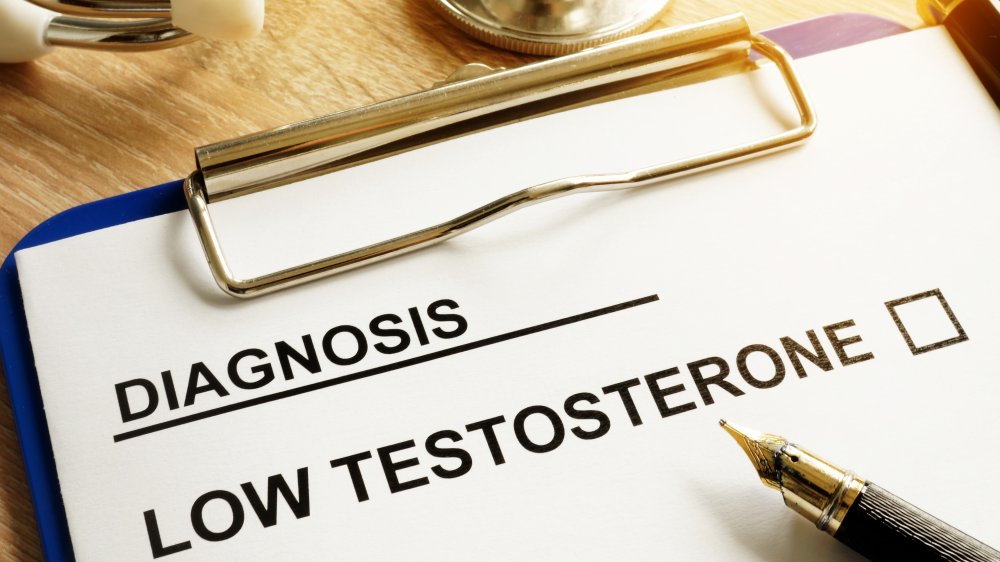You Should Think Twice Before Eating Soy. Here's Why
When it comes to so-called superfoods, soy makes for a pretty sketchy candidate. There is no doubt that it does provide some nutritious benefits. As Jaclyn London, MS, RD, CDN told Good Housekeeping, "Soybeans provide a plant-based protein source; a slew of vitamins and minerals crucial for reducing risk of chronic disease; and fiber that helps you fill up and feel satisfied."
Well, the protein and the fiber are the real deal, all right, as are the nutrients, but as to soy's disease-preventing powers... the jury is still out — or rather, the pendulum is still swinging. While at first soy was hailed as a miracle cure for cancer, obesity, and heart disease, later studies demonized it for its potential to lower fertility rates, screw up the thyroid, and yes, cause cancer instead of curing it. (Since what foodstuff has not been said to cause cancer in some study or other?)
While nothing we know today could be considered the definitive last word on soy, current research indicates that most soy foods are overall pretty healthy, but consumption (or over-consumption) of soy products is not entirely without risk in certain cases.
Soy may cause fertility issues
There is a lot of confusing information out there when it comes to soy and fertility, and whether the consumption of soy products affects the prospective mother, the father, or both, or neither. Healthline makes reference to several studies claiming soy can be beneficial for women trying to conceive, particularly if they are making use of assisted reproductive technology such as IVF treatments. On the other hand, there have been other studies linking soy products to lower levels of reproductive hormones, poorly-functioning ovaries, and reduced rates of pregnancy or live birth in humans, as well as other studies showing that consuming high levels of soy phytoestrogens didn't do much for rodent reproductive rates, either. (Although this does imply that tofu might be put to good use in mouse traps.)
As to whether soy affects a man's ability to father children, again, there is no hard and fast answer. The American College for Advancement in Medicine discusses several different studies on this topic, one of which found that soy intake led to lower sperm levels, but another that showed no negative impact on sperm count that could be attributed to soy consumption.
Soy may lower testosterone levels
While the online epithet "soyboy" is thrown around most commonly by internet trolls and nobody's food choices should be gender-based, there may possibly be a link between high levels of soy product consumption and lower levels of testosterone. Healthline lists several studies that did seem to show a link between soy-based foods and beverages and altered hormone levels in human men (as well as in rats), although they also mention a review of other studies that drew no such conclusion. At present, it seems as if further research may be needed to determine just how, and at what levels, the consumption of soy products may decrease male testosterone levels.
Soy can be highly allergenic
While soy allergies are typically found in children, often starting as a reaction to soy milk-based infant formula, many people carry these allergies into adulthood. The Mayo Clinic lists hives and itching in and around the mouth as common symptoms of soy sensitivity, although more serious soy allergies may also result in rashes, flushed skin, swelling, breathing difficulties, stomach pains, nausea, vomiting, and diarrhea. In most cases, soy reactions aren't likely to be life-threatening, but there does exist a chance of anaphylaxis, which could be life-threatening if not treated immediately.
The real trouble with soy allergy (besides that whole "possibility of death" thing, no matter how slight) is that it's a difficult one to cope with. Kind of hard to avoid soy altogether when so many commercially-produced food products contain a certain level of the stuff: many cereals, baked goods, chocolate, and even meat (due to livestock feed) are unlikely to be soy-free.
Soy may mess with your digestion
Soy-based foods aren't always the easiest to digest. The International Journal of Molecular Sciences (via PubMed) published a study in which a compound found in soy products was found to have "anti-nutritional" properties that can cause it to upset the balance of intestinal flora, which basically means it's the opposite of a probiotic food (although no, this does not make it an antibiotic). Science Direct also reveals that soybeans contain high levels of trypsin inhibitors, another "anti-nutrient" that may lower the body's ability to digest protein. This basically makes soy products a kind of Catch-22 food — they provide protein, but they won't let you absorb all of it.
Soy also has another well-known side effect with which those who eat a lot of soy (or those unfortunate enough to be in their vicinity) are likely to be painfully familiar. As the Journal of the American Oil Chemist's Society (via Springer) puts it, "Elimination of flatulence is a challenging practical problem associated with the consumption of soybeans." In other words, eating soy will make you fart a lot, and science can't do a darn thing to help you out. Probably your best bet is to eat soy in the company of others who are also doing likewise, that way you can all take turns glaring at each other each time an unfortunate event occurs.





